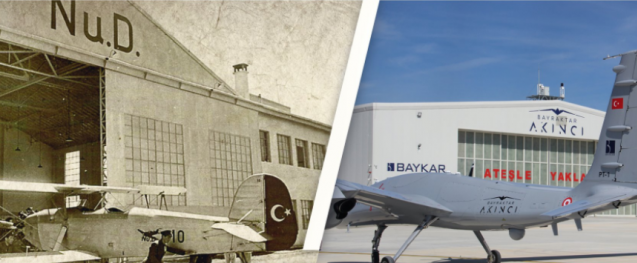[:en]
It sounds scary at first, but this is a situation that Turkey had experienced in the 1930s. Nuri Demirag, who defends the idea that Turkey cannot be liberated as long as it does not manufacture its own aircraft and decided to establish Turkey's first aircraft factory.
Nuri Demirag could be called Turkey's most extraordinary industrialist, scientist, aka Elon Musk at that time. The name that brought all the factories of the early industrial period, from cigarette paper to rail transportation, from iron and steel factory to parachute.
The stroy of the closure
After the factory is established, the first order comes from Turkish Aeronautical Association; a total of 24 aircraft. Then Spain and Iran, followed by Iraq with a total of 30 more orders took place. In summary, Nuri Demirag had completed the production of 12 aircraft for the Turkish Aeronautical Association.
But then, interesting political developments took place. The spreading popularity of Nuri Demirag to the country made politicians nervous. And the first kick comes from inside the country. Turkish Aeronautical Association cancelled all orders on the pretext of an accident in the test flight. Moreover, a law is enacted in the parliament that prevents export of the aircrafts. For this reason, orders from Spain, Iran and Iraq were also cancelled. As the orders received from abroad were blocked, the remaining planes were scrapped too.
The result, Turkey's first and still the only one aircraft factory closes. Turkish Aeronautical Association took the planes from France. The France, who left the railway construction abandoned in 1926 and escaped. Well, Nuri Demirağ had completed the job that was left to inertia, anyway.
Will Turkey's UAV / UCAV factories be closed?
Turkey has become a country that determines balance both in the region and in the world arena with its UAV / UCAV technology. The most concrete examples are the firm stance on Libya and the eastern Mediterranean issues, the balance policy followed with Azerbaijan and Ukraine. Turkey, especially supporting its gains in the defense industry with sectoral collaborations, has advanced in the position of ammunition and ammunition technology. More importantly, the reflection of this technology on the country's economy is quite impressive. Turkey, which has become an exporter country in the sector with the emergence of a domestic and national industry from a foreign-dependent defense industry, is among the rare countries that succeeded in converting these gains into foreign currency input in a very short period of time.
So much so that while Turkey was the 14th country with the highest exports in 2019, it rose to 13th place in 2020. Undoubtedly, as one of the first 3 countries producing Unmanned Aerial Vehicles in the world, the contribution of Turkey's income in this area is undeniably high.
BAYKAR is currently the company that sells the most UAVs / UCAVs in the world. In particular, The company has signed hundreds of millions of dollars of contracts in this area. It currently manufactures hundreds, will start to produce thousands in the coming years, and dozens of countries are waiting in line for orders.
So to speak, he sees the big picture and tries to raise awareness and knowledge of the society. He leads the establishment of non-governmental organizations on technology. He sets up technology workshops to find and extract the gems from the youth and organizes festivals that even 5-6 year olds are crazy to go.
UAVs/UCAVs significantly contribute to the Turkish economy
The Turkish aerospace industries are also working hard to close the technological and economic development gap between the country and the developed world. It produces high technology products on UAVs/UCAVs, helicopters, missiles and similar ammunition. In addition, by exporting the produced defense industry products, it enables dollars to enter the country's economy.
Moreover, The institution has pioneered the formation of a sector called the “defense industry” by choosing to work with dozens of Turkish factories while producing these technological products. We can say that by signing sectoral cooperation agreements, it has kept both itself and the sector alive, thus preventing hundreds of engineers from being left idle.
